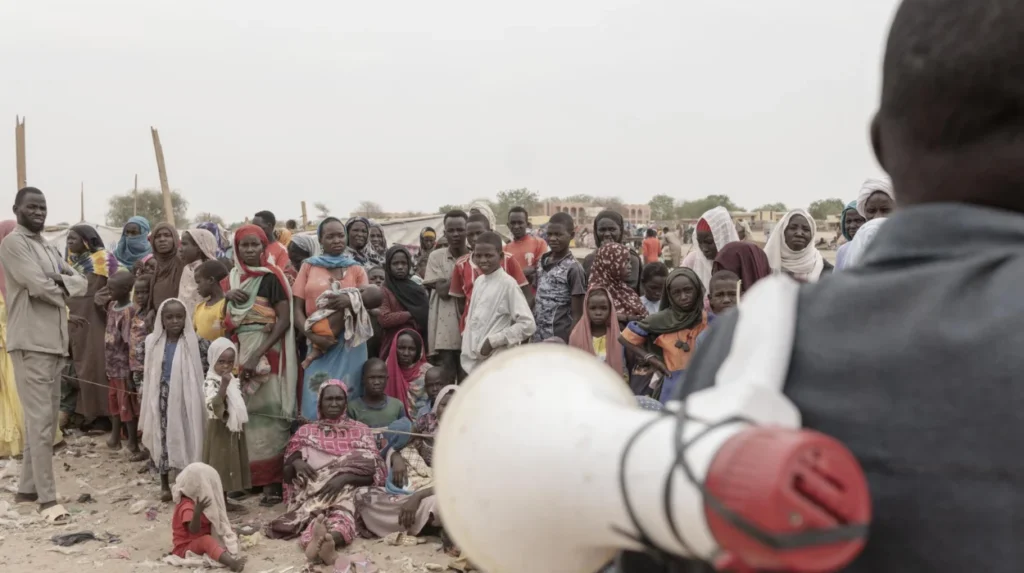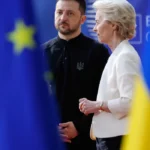The European Parliament has taken a firm stance on the ongoing atrocities in Sudan, condemning the escalating genocide and human rights violations amid the conflict between Sudanese Armed Forces (SAF) and Rapid Support Forces (RSF). With the conflict forcibly displacing over 13 million people and causing immense humanitarian crises, lawmakers are pushing for urgent international intervention and targeted sanctions against perpetrators.
The conflict, which erupted in April 2023, has devastated Sudan, with two-thirds of the population—approximately 16 million children—in desperate need of humanitarian aid. The healthcare system lies largely collapsed, exacerbating risks such as malnutrition, disease, and widespread food insecurity.
Mounting Evidence of War Crimes
In March 2025, the European Parliament adopted a resolution highlighting the severe political, humanitarian, and human rights crisis in Sudan. The body reaffirmed its support for ongoing investigations by the International Criminal Court (ICC) into genocide, war crimes, and crimes against humanity committed in Darfur since 2002.
The report underscored alarming abuses such as the use of rape as a weapon of war. According to UNICEF data cited by the Parliament, gender-based violence is rampant with more than 12 million people at risk of sexual violence, including forcible rape and forced marriages. Since early 2024 alone, 221 cases of child rape were reported, with victims as young as five years old.
This systemic sexual violence has been condemned as shattering the very fabric of society, with MEP Hilde Vautmans urging,
“Sexual violence shatters the very foundations of a society and reduces a country—entire generations—to ruins.”
She further pressed for Europe to impose sanctions on war criminals and enforce a UN arms embargo to halt the atrocities against women and children.
Controversy Over Peace Talk Invitations
A recent controversy arose when a German Member of the European Parliament inadvertently invited militiamen linked to genocidal acts to participate in European Parliament discussions on peace in Sudan. This misstep drew condemnation, highlighting the sensitivities and complexity of engaging with armed factions responsible for grave human rights violations.
The Rapid Support Forces, formerly the notorious Janjaweed militia, are widely implicated in violent crackdowns, detentions, and attacks on civilians. Despite their history, they have been controversially involved in EU-funded migration control projects, sparking criticism over potential complicity in abuses. British MPs and human rights advocates have sharply criticized the EU’s cooperation with Sudanese security forces, warning it risks undermining Europe’s human rights reputation.
Urgent Call for Humanitarian Aid and Accountability
The European Parliament resolution calls on all parties in the conflict to allow safe, timely, and unhindered access to humanitarian aid providers like the World Food Programme. With millions at risk of famine and disease, ensuring aid delivery remains a critical challenge amid ongoing hostilities.
Human rights groups have urged the EU and its member states to ramp up support for International Criminal Court investigations and establish independent mechanisms for accountability over Sudan’s crimes. Amnesty International has documented mass civilian casualties, deliberate attacks on hospitals and churches, and widespread sexual violence, emphasizing the need for robust international oversight.
European Lawmakers Demand Concrete Measures
Beyond condemning violence, the European Parliament has pressed for concrete political actions. The body encourages imposing sanctions targeted at individuals and groups responsible for war crimes, extending and enforcing the UN arms embargo across Sudan, and increasing humanitarian assistance to affected populations.
MEP Hilde Vautmans encapsulated the urgency, stating,
“For far too long, Europe has looked away from what is happening in Sudan. When will we take responsibility and provide a clear response to the catastrophes unfolding on the African continent?”
Her statement reflects the growing impatience within European institutions for more decisive action.
Broader International and EU Response
The EU’s High Representative has echoed calls to halt the cycle of impunity in Sudan, emphasizing that those responsible for atrocities must be held accountable. However, questions remain about the effectiveness and pace of the international response.
Reports from independent rights probes indicate both the SAF and RSF have deliberately targeted civilians, displacing and starving populations as part of their military campaigns. These findings underline the complex and brutal nature of the war, necessitating multifaceted solutions encompassing diplomacy, sanctions, humanitarian aid, and legal accountability.
Challenges in Addressing the Sudan Conflict
The EU’s approach has faced criticism, especially regarding its partnerships for migration control with Sudanese security forces implicated in abuses. Critics argue these security-focused partnerships risk perpetuating violations, diverting attention from the protection and support of migrants and civilians.
Sudanese activists have voiced alarm that Europe’s emphasis on security may transform Sudan into a “large prison for migrants,” reinforcing police-driven control rather than humanitarian care.
The European Parliament’s resolute condemnation of the genocide and human rights abuses in Sudan marks a critical step in raising awareness and pressing for accountability. With millions of Sudanese caught in a humanitarian catastrophe marked by sexual violence, displacement, and destruction, the call for urgent European and international action grows louder. The challenge remains ensuring that commitments translate into effective interventions that protect vulnerable populations and hold perpetrators responsible.







